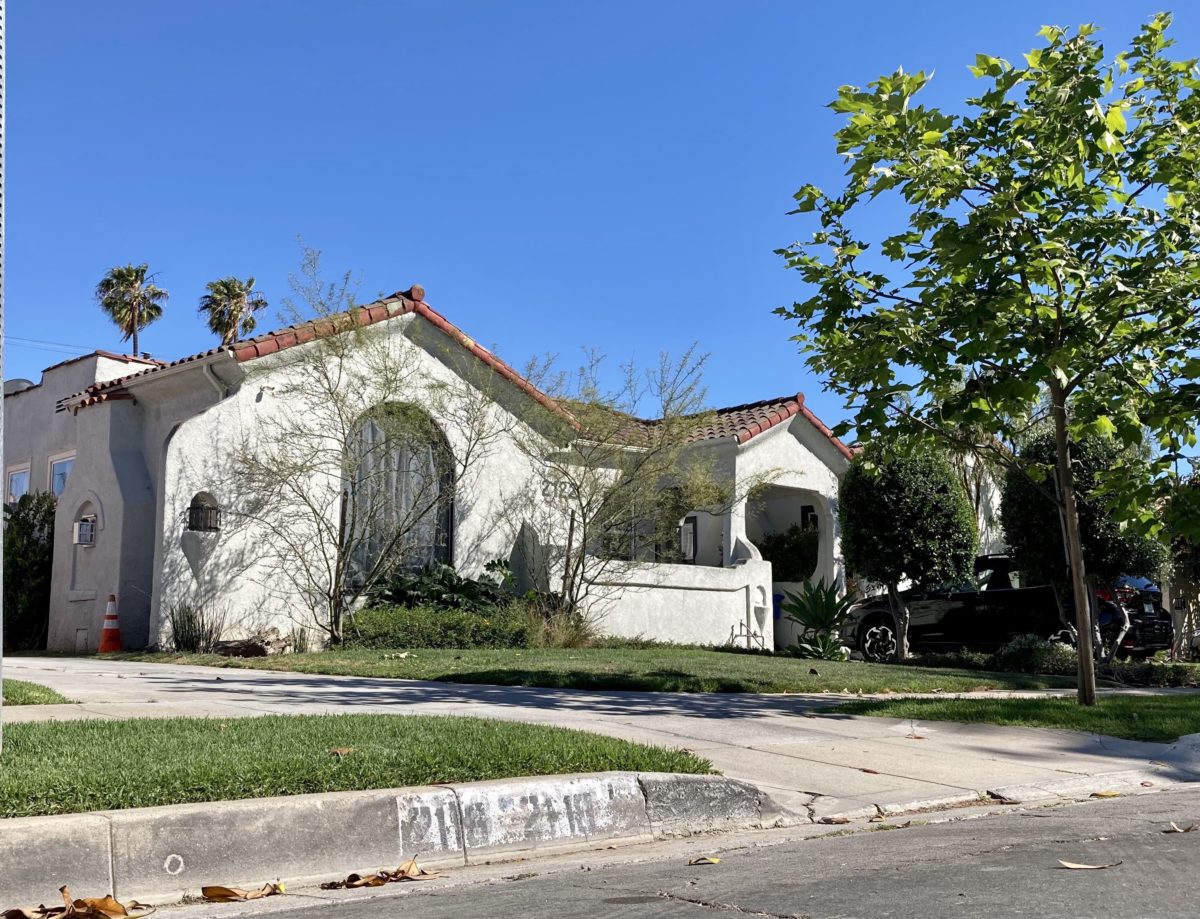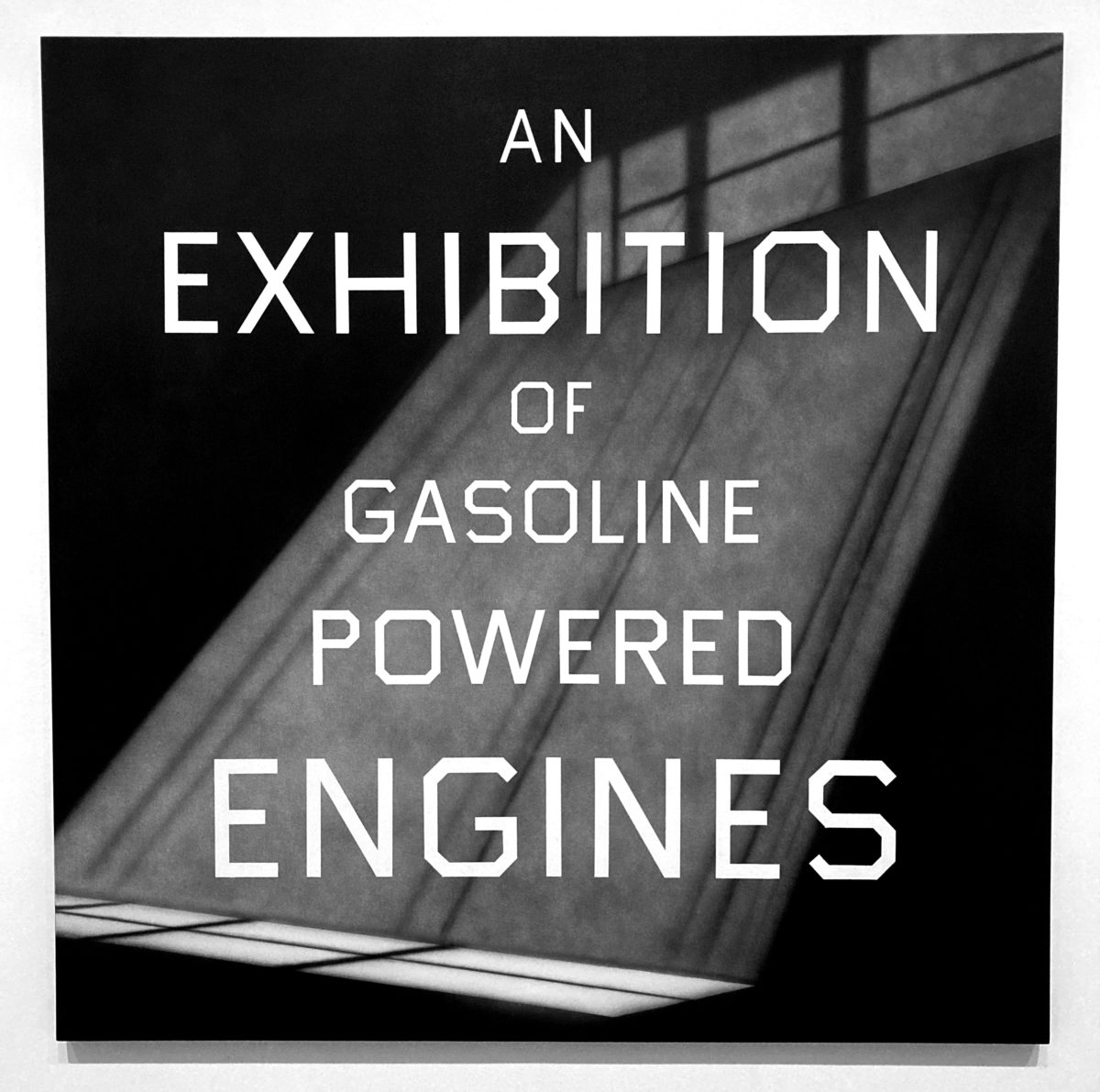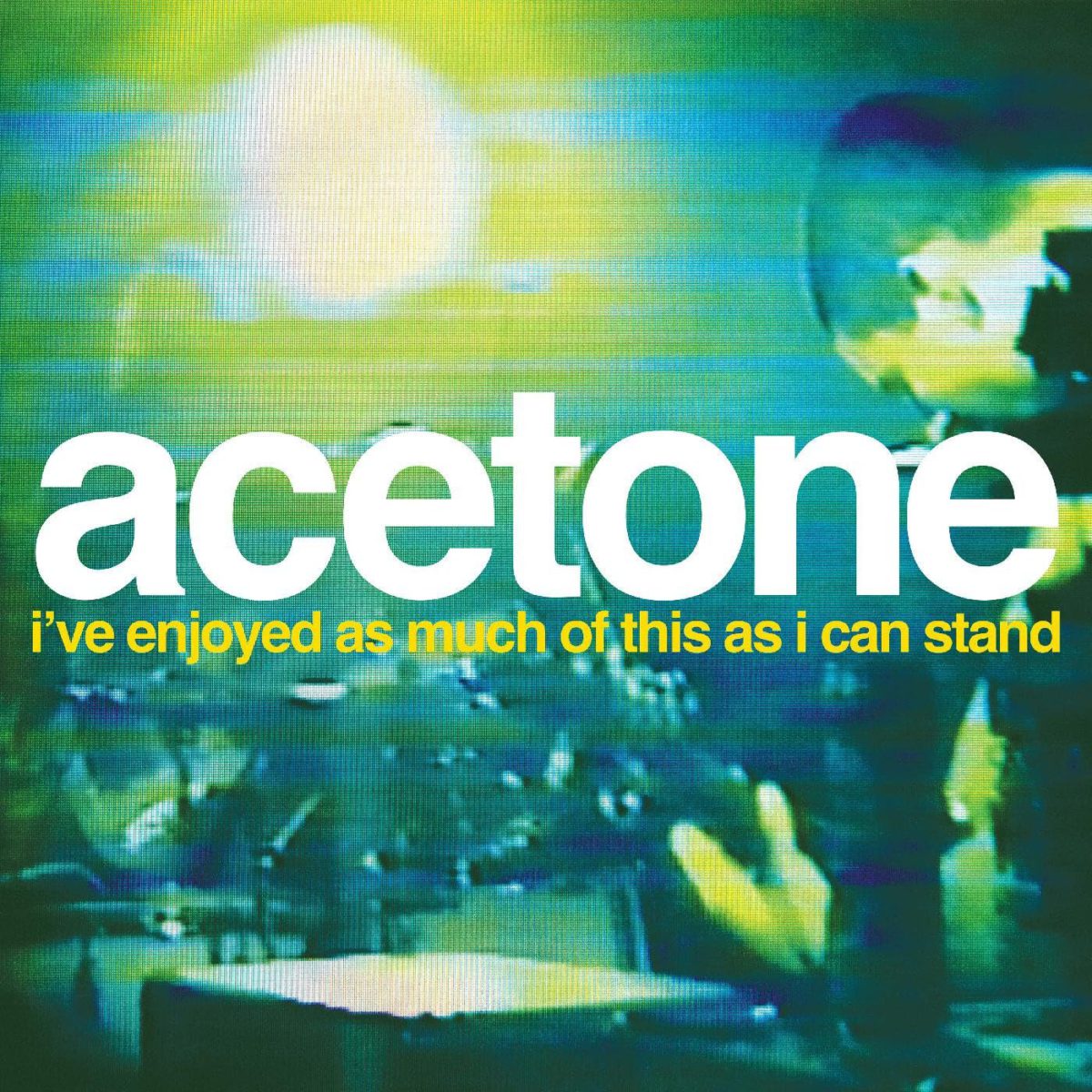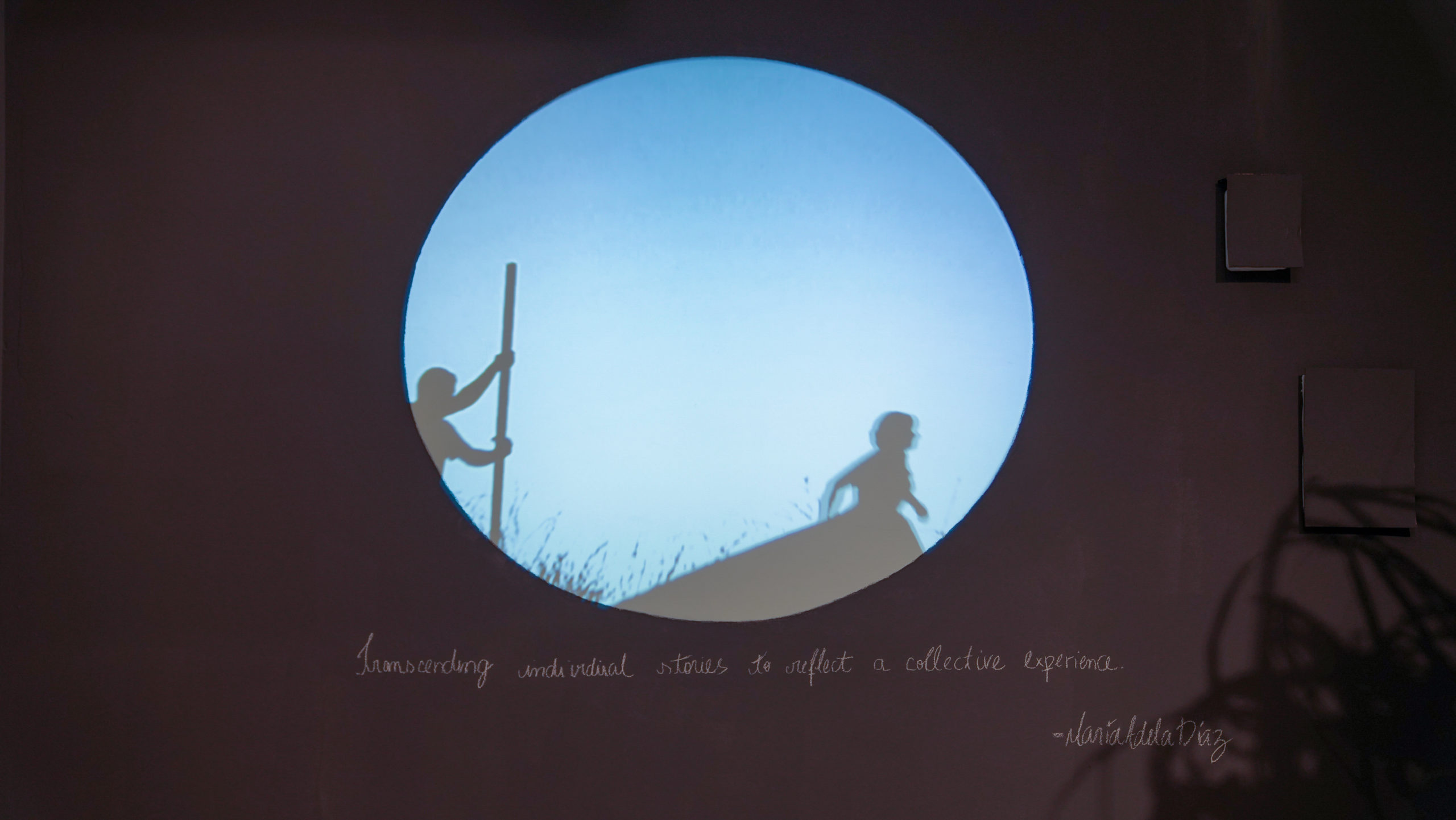
Bukowski: A Life, The Centennial Edition
by Neeli Cherkovski
Black Sparrow Press, $18.95
Conceivably, the story has been altered to fit the tune. It is a poem after all.
It was on the 2nd floor on Coronado Street
I used to get drunk
And throw the radio through the window
While it was playing, and, of course,
It would break the glass in the window
And the radio would sit there on the roof
Still playing
And I’d tell my woman,
“Ah, what a marvelous radio!”
(“A Radio With Guts,” 1973)
And each time he gets drunk, out goes the radio together with the glass, and each time it lands on the neighboring roof, it’s “still playing— / a magic radio / a radio with guts.” How the notoriously broke Bukowski can afford to keep replacing windows, we’re not supposed to wonder. The poem ends with: “I used to sit in the window / and watch the sun shine all over that thing / while the music played.” If there’s a metaphoric significance to the radio, to the music, we’re not supposed to ask. Bukowski didn’t go for that kind of thing.
Armed with irony, silence, and sarcasm, “Hank,” as he was known to friends, would form a rugged body of working-class prose and poetry—boozing, brawling, fluttering in and out of dead-end jobs before settling down to work, betting on horses all the while—that veered sharply away from the renewed genteel tradition in literature of the postwar 1940s and “We-Like-Ike” 50s, of which the novelist Herbert Gold observed, “Indeed it is difficult not to live cautiously these days.” Bukowski, who lived most incautiously, wrote about men and women on the outs in sun-drenched Los Angeles from a distinctly sallow-tinged point of view. To honor the centennial of Bukowski’s birth last year, his long-time publisher Black Sparrow Press, whose original mission included putting and keeping him in print, invited San Francisco poet and biographer Neeli Cherkovski (Whitman’s Wild Children, Ferlinghetti: A Biography) to revisit his well-received 1993 portrait of the man he’d called a friend for three decades.
Cherkovski, a warm and reassuring presence on the page, recounts the works and days of the old “lowlife laureate” with intimate detail and the respect of a close friend. In the new preface, Cherkovski admits, “My bias is toward the positive aspects of my subject’s life, and I even figure personally throughout the book, which makes it feel at times like something of a memoir of my friendship with Bukowski.” But the book is impressive in its scope and its tone, striking a fine balance between memoir and critical biography. Cherkovski adds some perspective to certain episodes in the writer’s life—his tempestuous relationship with artist Linda King, for example—but rarely attempts to prettify the picture.
Soon after his birth in Andernach, Germany on August 16, 1920, to Henry Bukowski, an American doughboy, and Katherine Fett, the sister of a German who ran Henry’s favorite canteen, Henry Charles Bukowski arrived in Los Angeles, his father’s hometown. Here, in the mushrooming Jazz Age metropolis still scattered with oil derricks and open plots from the citrus groves of the east to the amusement piers of the west, and which Aldous Huxley called “The City of Dreadful Joy,” Bukowski grows up under the shadow of a moody and dissatisfied father. Drawing heavily on Bukowski’s semi-autobiographical novel Ham On Rye (1982), its episodes cross-checked by Hank himself, a handful of remaining childhood friends, and Hank’s cousin Katherine Bukowski Woods, Neeli Cherkovski paints the portrait of an exacting, domineering father deeply insecure and threatened by the very existence of a son.
Hank never forgave his parents for what he considered their coarse selfishness, “over and over describing [them] as unfeeling people.” As a teenager, he takes refuge in books, working through the local public library’s variations of soppy sentimentality and melodrama until coming across the works of James T. Farrell, Upton Sinclair, Sinclair Lewis, William Saroyan, and Ernest Hemingway. Lewis’s Main Street in particular, with its utter stripping of pretenses, leaves a major imprint. In Sinclair’s The Jungle, Hank finds himself intrigued by the injustices it harangues. In The Sun Also Rises, A Farewell to Arms, and his bleaker short stories, Hemingway offers Bukowski clear images of life devoid of bathos, of brutality stripped of sanctimony. In a world of petty lies and vanity, here is something true. “Writing offered a defense against the mundane world,” Cherkovski writes. “The books [Bukowski] read taught him that he had not given in to the norms of society, and was not diminished by his father’s cruelty.”
After a lonely graduation, Bukowski takes a job at the massive Art Deco Sears-Roebuck on Olympic Boulevard in Boyle Heights, and there discovers John Fante (the novelist he would idolize the most); moving on to the Downtown Public Library, he devours Dostoevsky and other titans. The department-sorting drudgery proves formative in his unrelenting assault on deadening, routinized work imposed by corporate structures and organization men. With the country’s entry into World War II, Hank becomes a political gadfly, nurturing a deep distrust for ideological “slavery” he later channels into his more mature works of poetry (particularly 1972’s “Law,” with its imagery of children, dogs, and cats hanging from trees because “it’s been authorized”). When he comes home one day to find the lawn strewn with the pages of his short stories (Henry’s doing), he leaves for good. Living a life that resembles Jack London’s character, Martin Eden, he’s on the road for nearly five years, rambling aimlessly about America with drawn out spells in St. Louis, New Orleans, and Philadelphia, in and out of flophouses and the occasional jail.
“Bukowski’s primary complaint against society,” Cherkovski writes, “[was] that people are frightened by social and economic conditions into accepting humiliation and defeat.” Unlike the Beats, with whom he’s frequently and incorrectly grouped, Bukowski’s dive into the lower depths of American society wasn’t driven by some quest for spiritual truth, or guided by any privileged notion of artistic freedom or conscious cultural iconoclasm, but was a practical, working-class endeavor through which he developed a humane and matter-of-fact understanding for the impoverished, broken down, and forgotten, especially in his eternal Los Angeles.
This land punched in, cuffed-out, divided,
held like a crucifix in a deathhand,
this land bought, resold, bought again and
sold again, … and now
real estaters,
subdividers, landlords, freeway
engineers arguing.
(“Crucifix in a Deathhand,” 1965)
Opposed to the humdrum trappings of the “American Dream” myth, he becomes a brutish Bartleby for the Atomic Age, reducing the immortal “I would prefer not to” to “Don’t try.”
It’s Henry Chinaski, the outcast of comical ugliness who breathes life into the streets and cramped rooms as “a hero, a fall guy, a comic character, a womanizing lush, a wise old dog.” No degradation is too far for a character to experience, suffering a modern and mechanical oppression.
Having abandoned his callow ambition to be a “Great American Novelist” in the 1930s, and for decades devoted himself mostly to poetry published in obscure places, Bukowski returns to prose in the 1960s, when his bare-knuckle style and steadfast nonconformism made him an unexpected cultural hero in the flourishing underground press. His column “Notes of a Dirty Old Man” in LA’s Open City, and later the Free Press, gives him the room to fashion the persona of Henry Chinaski, enabling him to play the role of eternal outsider, buoyed both by his need to survive and the freedom to cover “whatever came to mind.” In 1966, John Martin, a thirty-something office-supply store manager and bibliophile, founded Black Sparrow Press largely for the purpose of publishing Bukowski, beginning with broadsides and later offering him a $100 monthly stipend that enabled Hank to quit his day-job at the post office. Legendarily, Martin sold his collection of D. H. Lawrence first editions to support his publishing venture, and Bukowski repaid his faith by turning in his first novel, Post Office, in a month’s time. While the man’s sheer output of both prose and poetry left behind a lot of slovenly work, this period marks the transition to Bukowski, novelist, an era where, after some three decades, he finally begins to show some mastery over his work.
With the creation of Henry Chinaski, Bukowski ushers in a hyper-realist counterpoint to Salinger’s slickened, posturing Holden Caulfield, the leading postwar literary rebel of the mainstream. But his bumper-sticker reputation as the bard of skid-row belies his literary ambitions and historical provenance: in Chinaski’s particular war against hypocrisy and America’s bankrupt morality, Charles Bukowski fuses the unflinching instincts of the novels of Dos Passos, Hemingway, and Knut Hamsun with the comical, cosmic humanity of Dostoevsky and Gogol to convey an unadulterated truth of circumstance.
Book after book follows, some less distinguished than others, vaulting the “eternal outsider” to the status of “celebrity”—at least in Europe (by the end of the 1980s, he’s Germany’s most-published, most-read American author). Bukowski begins touring, reading to raucous, back-talking audiences who crave a good insult lobbed their way by the old man himself in between sips of beer and wine. Bukowski wrote poetry like a man possessed, using spare lyricism to evoke his private truth, in its most lucid and variegated form.
Life, for Hank, was defined by moments of humanity, in love and laughter, or, more controversially, in virulent rage. According to film director Taylor Hackford, Bukowski “[enjoyed] creating emotionally pitched situations, all of it feeding into his art.” On a less favorable note, his work is littered with irredeemable characterizations of women. Critic Russell Harrison attempts to explain this tendency as “the phenomenon of a man whose deepest attitudes to women were shaped almost a half-century earlier than the era in which they were given artistic expression.” While there’s no outright excusing this behavior, Cherkovski’s dive into his three primary relationships: Linda King, Liza Williams, and Linda Lee Beighle, reveals a more tender side of the often insecure man grappling with the dueling flames of devotion and jealousy, spurred by bouts of heavy drinking. But Bukowski was conscious of the character he unleashed, and whether or not the schtick still sticks, the role of the brute was always more fiction than fact. It’s Henry Chinaski, the outcast of comical ugliness who breathes life into the streets and cramped rooms as “a hero, a fall guy, a comic character, a womanizing lush, a wise old dog.” No degradation is too far for a character to experience, suffering a modern and mechanical oppression. In this complicated yet distinctive vein, Bukowski takes a seat beside Louis-Ferdinand Céline and Henry Miller.
Barbet Schroeder’s Barfly—starring Mickey Rourke and Faye Dunaway—arrives in 1987, “a mixture of palm trees and misery” as Hank puts it. Bukowski is a star. He publishes Hollywood in 1989, a novel depicting the whole behind-the-scenes account with the same lack of pretentiousness that defined his whole career. Molly Haskell of The New York Times calls it “a classic.” By then he’s settled into a house in San Pedro with wife Linda Lee, and the Miller beers and cheap red have been replaced by Heineken and fine wine. But his small, old radio keeps playing. “You know, famous or not famous, rich or poor, all I wanted was to write, and I did it.” “The sense of the Whitmanic man prevailed,” Cherkovski declares, “unattached to ideology, yet acutely aware of his own needs and desires and exactly where he stood in relationship to the life around him.”
“When I think of the essence of Charles Bukowski,” Neeli tells us, “I think of the day he met my partner Jesse Cabrera … Hank took me aside and said, ‘I’m so glad you are with somebody, man.’ Linda had a room prepared, and there were fresh-cut flowers in a vase on the nightstand. None of this surprised me.” Hank fostered showmanship, rage, and bravado, sure, but all throughout his life he embodied courage, integrity, and compassion. Guts and music, you could say. He endured. Now that we are once again, for good or ill, living in an age of ideology, there’s something to be said for that bit-by-the-teeth composure: “still alive, / poor but strong, / knowing Haydn at 4:30 a.m., / … this good night / is still everywhere.”




